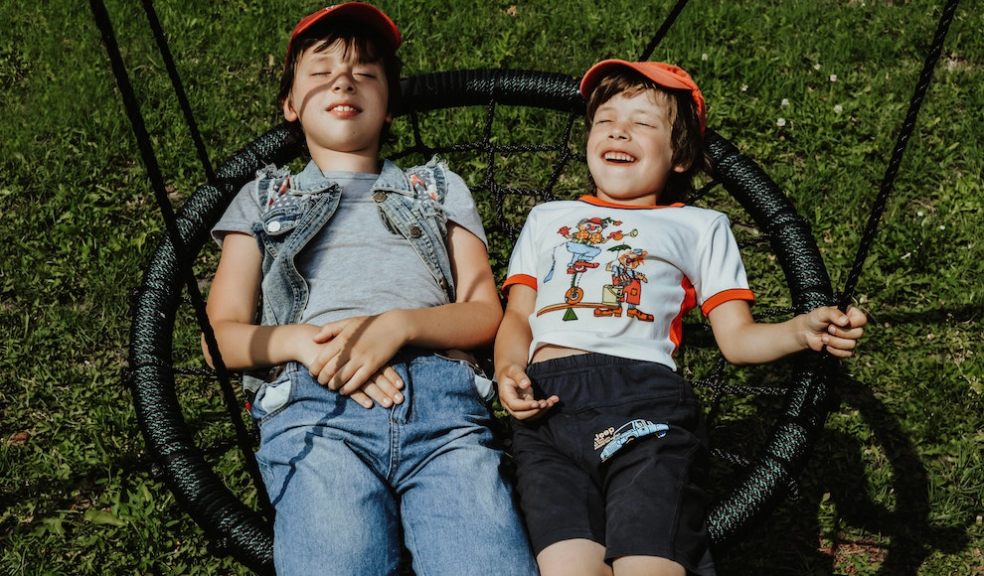
The Role of Playground Equipment in Social Skill Development: An In-Depth Examination of the UK Market
Introduction
The concept of play and playgrounds transcends the realm of simple fun and games. While they are undeniably sources of enjoyment and physical activity for children, their impact is more profound than initially perceived. In particular, school playground equipment, from the simple swing set to complex climbing frames, forms a critical component in the development of a child's social skill set.
In the United Kingdom, playground equipment is designed not only to entertain and challenge a child physically but also to stimulate their social, cognitive, and emotional growth. This article explores the intricate relationship between children, playground equipment, and the development of essential social skills like communication, cooperation, conflict resolution, and empathy.
The Social Significance of Playground Equipment
The influence of playground equipment extends beyond providing a platform for physical activity. They create an environment that propels children into scenarios where they must interact, communicate, negotiate, and empathise with others, fostering vital social skills in the process.
Communication Skills
The playground serves as a social hub where children learn the ropes of communication. On this stage, playground equipment becomes a catalyst for interaction. As children engage in activities on swings, slides, climbing frames, and seesaws, they navigate various channels of communication.
For example, when two children want to use the swing simultaneously, they have to convey their desires, potentially negotiate turn-taking, and interpret each other's verbal and non-verbal cues. Consequently, they enhance their language skills, learn to express their needs clearly, and grasp the importance of listening and interpreting body language accurately.
Cooperation and Sharing
Learning to share and cooperate is a vital aspect of social growth. The limited availability of playground equipment naturally leads to the necessity of sharing and cooperation. For example, while using a seesaw or a swing set, children must learn the concept of turns.
Through these shared experiences, children grasp the concept of equality, understanding that each child has an equal right to use the playground equipment. This principle of equal opportunity and cooperation translates into their social interactions off the playground, helping them become more socially responsible individuals.
Conflict Resolution
Disagreements and conflicts are natural parts of social interaction, especially in a playground setting. For instance, disputes can arise over the turn to use the slide or the right way to use a piece of equipment. These situations provide a natural setting for children to practise conflict resolution.
Children learn to negotiate their needs, advocate for themselves, and find compromises. They understand that conflicts can be resolved through discussion and mutual understanding rather than aggression, thereby learning to apply diplomacy and respect in their interactions.
Empathy and Understanding
Playing with others on various playground equipment helps children grasp the concept of empathy. They observe and understand the reactions, emotions, and needs of their peers. For example, a child who witnesses their peer fall off a swing and cry may learn to empathise with their pain.
They also learn to adapt their behaviour in response to others' feelings, gradually developing their emotional intelligence. This sensitivity towards others' feelings and experiences can shape children into compassionate and understanding individuals.
An Overview of Playground Equipment in the UK Market
The playground equipment in the UK is designed with a keen eye on the developmental needs of children. Various types of equipment cater to different age groups and skill levels, each bringing its unique contribution to children's social skill development.
Swings and Slides
Swings and slides, the timeless classics of any playground, offer more than just exhilaration. They inadvertently teach children about sharing and cooperation. Waiting for a turn on the swing helps a child understand patience, while helping a smaller child slide down instils a sense of empathy and caring.
Climbing Structures
Climbing structures such as monkey bars, climbing walls, or rope ladders push children out of their comfort zones. They encourage risk-taking, problem-solving, and resilience. These structures also inspire teamwork; often, children have to work together, guiding and supporting each other to safely navigate these challenges.
Seesaws
Seesaws introduce the basic concept of balance and coordination in a fun, interactive way. They require partnership and mutual cooperation to function properly, making them perfect for teaching kids about teamwork. A seesaw ride's success depends on understanding the partner's actions and responding in harmony, thereby promoting cooperation and mutual understanding.
Interactive Panels
Interactive panels, including puzzles, game boards, or mazes installed on playgrounds, offer an excellent blend of cognitive stimulation and social interaction. These panels usually require group participation, fostering a sense of community and collaboration among children. They learn to work together to solve the puzzle or win the game, enhancing their problem-solving and team working skills.
The Impact of the UK's Emphasis on Inclusive Playground Equipment
The inclusivity wave has swept across the UK playground equipment market. There is a growing demand for equipment that can be used by children of all abilities. This inclusivity trend encourages diversity and unity on the playground.
Inclusive playground equipment allows children of varying abilities to engage in play together. This interaction fosters understanding, empathy, and respect among children. They learn to appreciate the differences in people and understand that everyone has unique strengths and abilities, creating an atmosphere of acceptance and camaraderie.
Conclusion
Playground equipment in the UK is not just about fun and physical activity; it plays a pivotal role in moulding children's social skill development. From improving communication to resolving conflicts, from learning to share and cooperate to fostering empathy and understanding, these play tools prepare children for the social complexities of their future lives. Recognising this profound influence can help educators, parents, and policymakers invest more wisely in playground equipment, thus contributing to the holistic development of future generations.

















